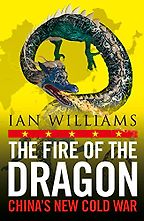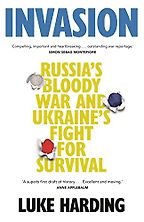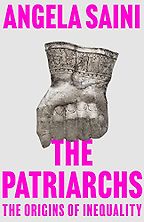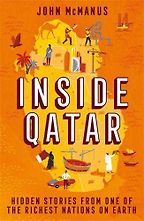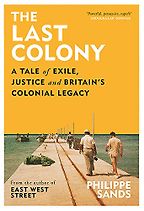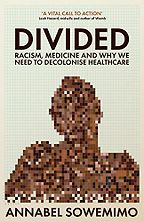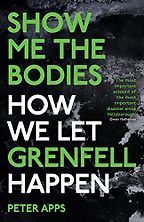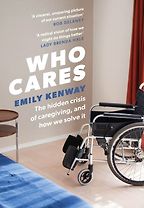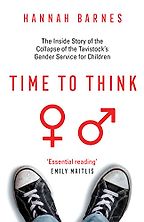Best Politics Books of 2023, recommended by Martha Lane Fox
Last updated: May 22, 2025
THE 2023 ORWELL PRIZE FOR POLITICAL WRITING
Martha Lane Fox, chair of this year's judging panel, talks us through the nine finalists for the 2023 Orwell Prize for Political Writing, awarded annually for a nonfiction book.
Q. Readers outside the UK might not be familiar with the Orwell Prizes. Could you tell me what kind of books you were looking for and that the Orwell Prize for Political Writing is trying to single out?
Martha Lane Fox: I’m sure everybody has their own sense of George Orwell as a person, but for us as a set of judges, we're looking for three major things. The first is great writing. It sounds obvious, but this is a writing prize so you’re looking for clear writing and great storytelling. George Orwell wrote many essays about writing itself and, for me, it was very important that we found books that were very well written.
The second is subject matter that reveals truth. We wanted stories and insights with a political bent, that reveal things about us as a country or as a world. We wanted books that help us understand stories and ideas that are not necessarily about the most well-known subjects, although we ended up with some that are. But always we were looking for books that show a depth or urgency in a story that perhaps we hadn't appreciated before.
The final thing, I think, is an element of bravery in the storytelling, of not being afraid of either vested interests or the establishment or of telling something difficult. It’s about following George Orwell’s deep commitment to revealing inequalities and always acting with bravery and truth.
So those were the three things—great writing, revealing something we perhaps hadn't understood or seen before with incredibly detailed research, and then, finally, an element of bravery:
The Fire of the Dragon: China’s New Cold War
by Ian Williams
“I have to warn you, don’t read any Orwell books before you go to sleep. I cried when I read Who Cares, I was furious when I read Show Me the Bodies, I was dismayed when I read Divided. All these books bring you to certain emotions. This one, The Fire of the Dragon, just kept me awake because it scared me. And I’m not prone to hyperbole, generally.
What I found so incredibly powerful about this book is just how important it is that we all understand more about what is happening in China and its worldview. I’m not saying this in a nationalistic or close-minded way, but this book reveals the much scarier nature of the world, when you think about it through the lens of China. That’s what it challenges you to do. How China sees us and how we see China and the ambitions on both sides are so wildly different. The book shows how bad the policy has been in terms of individual governments in relation to supply of resources, what’s happening in Taiwan, what this author thinks will happen in Hong Kong. It kept me awake because it feels as though this is troubling in a way that not enough people are really thinking about and understand well enough.”
Invasion: Russia’s Bloody War and Ukraine’s Fight for Survival
by Luke Harding
“This feels to me a bit like a watercolor, in that it’s painted very quickly, with incredible beauty but also real clarity and, in this case, horror. Luke writes brilliantly about what’s happened in Ukraine, not just since the invasion, but he puts it into historical context. This book is not a finished product as, unfortunately, the war is ongoing, and it only goes a few months in. But it’s an incredible combination of really deep research about this appalling conflict and the sweep of history, and the experiences of a war journalist being in a location and the really visceral nature of just being in a war.”
The Patriarchs: How Men Came to Rule
by Angela Saini
“The Patriarchs is fantastic. Angela Saini is a science journalist and it’s a very detailed study and look at feminism over time with an interesting bent. Different women through the ages haven’t understood in the way that power has arisen and the way that we moved from a matriarchal society, thousands of years ago, to a patriarchal one. Again, it’s the long sweep of history, but with a very political endpoint. Why have we ended up here? Why do we live in a patriarchy now when we haven’t at moments in history? What’s happened? I’ve read so many books on this subject, but I love this because of its fabulous combination of real detail about some really interesting cultures centered on women, but again, with a very strong political message.”
Inside Qatar: Hidden Stories from One of the Richest Nations on Earth
by John McManus
“Qatar has been in the news because of the World Cup, but this book is not just for people interested in football. It’s about the growing importance of this little state which I knew a little bit about, but not nearly enough. It’s about what’s gone on there. I won’t use the word corruption—I’ll let readers decide for themselves—but Qatar is a very important access point in the Middle East, from which money flows in and out around the world. He interviews people around the country and looks at its interrelationship with the rest of the Middle East and the world. It’s a really fascinating read.”
The Last Colony: A Tale of Exile, Justice and Britain’s Colonial Legacy
by Philippe Sands
“I’m sure many of your readers know Philippe Sands’s books. Philippe writes with real energy about subjects that are often very complicated, nuanced, and unpleasant. I did not know enough about this saga in British history, where islanders were removed from their homes because of the geopolitical nature of the archipelago they lived on, and its importance for military manoeuvres in the area.
Just as he did with his previous books, Philippe brilliantly weaves quite complex international law and international legal history with the personal stories of the people who were removed in the middle of the night. It’s a fabulous exploration of some big topics around how to structure international law and how to use the international legal framework, through the eyes of the people who were really impacted. The British did not behave well, not at all. In thinking about our role in the world, this is a really important book.”
Divided: Racism, Medicine and Why We Need to Decolonise Healthcare
by Annabel Sowemimo
“This is a really interesting book written by a doctor, so someone coming out of the medical profession. Annabel Sowemimo is a black female doctor so an even more important voice to be heard. She has done an incredibly detailed study of why we have such brutal health inequalities in this country. It’s about the racist nature of some of the health care choices and structures that we have. I have spent an enormous amount of time in the healthcare system, way more than your average person, but I was not aware of the scale of the challenges that people face if they’re from certain minorities. For example, black women are four times more likely to die in childbirth. It’s so shocking.
Again, she has done this fabulous balancing act of real detail and extremely careful research, sometimes academic research, but always coupled with stories from doctors, from patients and from healthcare professionals. It’s a very important book. We’re grappling with so many issues in this country at the moment and all of these books touch on them in some way, but this one does so in spades.”
Show Me the Bodies: How We Let Grenfell Happen
by Peter Apps
🏆 Winner of the 2023 Orwell Prize for Political Writing (nonfiction)
“The title of this book, ‘Show Me the Bodies,’ is of course the response that is ascribed to one of the civil servants working in the Department for Communities and Local Government who was warned before the Grenfell catastrophe that fire safety rules needed to be tightened. To have such an expansive history of Grenfell is phenomenal. The book is an incredible journey through the last 40 years of sometimes neglect, sometimes just carelessness, in the management of our housing stock by successive governments, ministers and civil servants, as well as councillors and building suppliers. It’s very carefully researched and unflinching.
It’s a very forensic look at how we got to Grenfell, but also all the other issues that we face in social housing. It’s not only devastating about the horrific tragedy at Grenfell, but it’s also the years of abuse that we’ve put people through because of the substandard quality of housing that they have lived in.”
Who Cares: The Hidden Crisis of Caregiving, and How We Solve It
by Emily Kenway
“Emily starts the book by pulling us up and reminding us that everyone is going to face this issue in their lives: there is hardly anyone who escapes needing to care for someone. I use the word escapes because I think she would describe the care that she had to do for her mother, who was dying, as a prison and one of the most appalling things that she’s ever had to do in her life.
Emily weaves in her own story of unpicking a care system and working through it and looking after her mother who died with the macro issue that we are trying to reckon with as a country and globally. It’s a really phenomenal interweaving of her own personal story—which is extremely upsetting and very hard to read at moments—with deeply researched statistics and the way that the care structures in this country work. It’s the perfect Orwell book, in a way, because you’ve got this amazing narrative and this extremely personal reveal of what Emily had to go through, coupled with research and political points about how we need to restructure care in this country.”
Time to Think: The Inside Story of the Collapse of the Tavistock’s Gender Service for Children
by Hannah Barnes
“Hannah Barnes, who wrote this book, is a Newsnight journalist and had done a lot of work for the BBC revealing what had happened at the Tavistock, a clinic set up in London in 1989 to help kids who are struggling with gender dysphoria. This is a story of bad management in a local center. It also touches on some of the decisions that were made about puberty blockers and the way that young people were treated. What we found really compelling about this story was the detailed research. She interviewed lots and lots of people who had been through the clinic or had worked there.
This is a complex subject that divides opinion, but it’s also important to think carefully about and to be able to talk about and debate, particularly as it’s now been revealed how many children’s lives were changed. They were put on drugs and medication that people had not fully understood, with profound consequences.”
